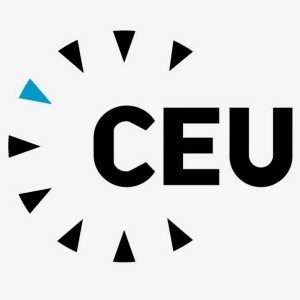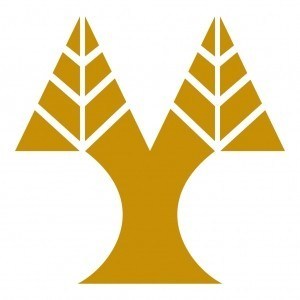Photos of university / #oxford_uni
This two-year course has been devised as a multi-purpose introduction to the Roman world in Late Antiquity, to Byzantium, the medieval successor of the East Roman Empire, and to neighbouring peoples and their cultures.
About a quarter of master’s students proceed to doctoral work at Oxford; others continue academic study at other institutions. Other career destinations are as diverse as, but broadly in line with, undergraduate history career destinations: law, finance, management consultancy, civil service etc.
This is a two-year taught course that can be taken as a free-standing degree, or as the first step towards doctoral research. The course includes the completion of a 30,000-word dissertation.
You have the option of selecting a focus of study dependant on your knowledge of languages or on your primary interests in the field. Two basic pathways lead into each field of study, one in language training and one in auxiliary disciplines, and you are expected to choose between them at the beginning of the course.
The language training pathway offers intensive training in any one of the following ancient and medieval languages:
- Greek
- Latin
- Slavonic
- Armenian
- Syriac
- Coptic
- Arabic
The second pathway, offering training in auxiliary disciplines, is designed for those who already have considerable competence in their chosen language and whose principal interests lie in history, art and archaeology or religion. You will receive instruction in one or two of a range of specialist auxiliary disciplines of papyrology, epigraphy, palaeography, numismatics, sigillography, or artefact studies (choosing to study either ceramics, metalware, ivories, codices or carved marbles) and you will choose a special subject from a list in your preferred subject area, ie in either history, art and archaeology, literature or religion.
Teaching and examination in this programme comprises five compulsory elements:
- a course of study in history, art and archaeology during the first two terms of the academic year, comprising two sets of weekly classes. You will submit two 5,000-word essays on topics of your choosing, subject to the approval of your supervisor;
- the study of three subjects on which to be examined which may include topics in ancient and medieval languages, epigraphy, numismatics, artefact studies, literature, history and religion. Language and literature as well as auxiliary disciplines will normally be examined by unseen examinations at the end of Trinity term, while attainment in other subjects are assessed on the basis of submitted essays or dissertations; and
- a thesis of not more than 30,000 words, written during the second year on a subject approved by your supervisor.
Please note that not every optional subject listed may be on offer every year, depending in part on levels of student demand. Full details of core and optional papers available are available on the course webpage.
Although the two components of the course, Late Antiquity and Byzantium, have been designed to the same specification and are conjoined in a single course, you are expected to concentrate on one or other of the fields.
If you wish to apply for the DPhil you will be encouraged to develop your doctoral proposal in consultation with your supervisor during the first few months of your second year, so that you will be well placed to make a doctoral application.
You should not apply to both the MSc and MPhil in this research area. Both courses have the same entry requirements.
Applicants are normally expected to be predicted or have achieved a first-class or strong upper second-class undergraduate degree with honours (or equivalent international qualifications), as a minimum, in a relevant discipline in the humanities or social sciences.
For applicants with a degree from the USA, the minimum GPA sought is 3.75 out of 4.0.
Applicants are normally expected to have a previous degree in history, but for master's applications a number of candidates will be accepted without. You will need to ensure that you link your proposed dissertation topic with your previous expertise when you present it in your research proposal, or that you explain why you want to switch to study history, and to show that you have already done some background research into it. Your submitted written work should show your writing and research skills in their best light, as it will be important to show that you have the necessary skills required for historical research.
If you hold non-UK qualifications and wish to check how your qualifications match these requirements, you can contact the National Recognition Information Centre for the United Kingdom (UK NARIC).
No Graduate Record Examination (GRE) or GMAT scores are sought.
- Official transcript(s)
- CV/résumé
- Statement of purpose/personal statement: 500 to 1,000 words, typically two to four pages double-spaced
- Written work:Two essays of 2,000 words each or one essay of 4,000 to 5,000 words
- References/letters of recommendation:Three overall, generally academic
ENGLISH LANGUAGE REQUIREMENTS
Higher level
|
est |
Standard level scores |
Higher level scores |
||
|
IELTS Academic |
7.0 | Minimum 6.5 per component | 7.5 | Minimum 7.0 per component |
|
TOEFL iBT |
100 |
Minimum component scores:
|
110 |
Minimum component scores:
|
| Cambridge Certificate of Proficiency in English (CPE) | 185 |
Minimum 176 per component |
191 |
Minimum 185 per component |
| Cambridge Certificate of Advanced English (CAE) | 185 |
Minimum 176 per component |
191 |
Minimum 185 per component |
- Global Education
- Hill Foundation Scholarships
- Ertegun Scholarship Programme









